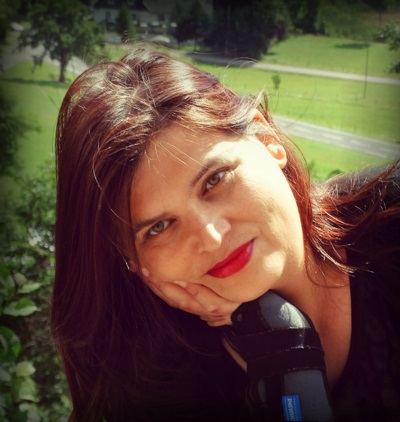Writing a book may seem easy. You have an idea, and you write it down. Simple, right? Wrong. Writing is more than just writing. When you come up with an idea for your story, you have to do some research. I recommend starting with a character sheet for your protagonist, antagonist, and anyone else who drives the plot. Keep it simple. Describe their goal, their personality, and their actions. Don’t forget to add unique traits, and be sure to give them some backstory. How do your characters connect with each other?
I suggest using Microsoft Word to begin with. You may not enjoy working with Word, but it’s the industry standard, and it has a useful feature you’ll love: Track Changes.
Next, you need to develop the setting. Research the landmarks, the environment, the monuments, statues, parks, and the people who live there. You might also find it easier to use your hometown as the setting for your story. Look around as you walk the streets and imagine you’re seeing things for the first time. Describe them as if you were a visitor in town. Observe the people, and take notes on how they dress and interact.
RELATED READ: 10 Tips to Write a Best-Seller Novel
It can be useful if you use some major news events as a backdrop for your story. Luckily, you can use the Internet for research. Once you have an outline of your story, you can start writing. Keep it simple. Start your story with your protagonist in a tough situation. Don’t go into too much detail to keep your readers engaged.
Don’t revise your story as you write it. Some writers are planners, and some are pantsers. Planners make an outline before they write, while pantsers just wing it and see where the story takes them. I’m a planner, so I map out my chapters ahead of time and then write whatever pops into my head.
Put your characters in a tough situation and show how they overcome it. Then keep your readers hooked by creating new problems for the characters to solve. When you finish your first few chapters, read them over. Do they sound good? Are there any plot holes you missed? If so, fix them. Then work on your next few chapters.
Try to find two or three beta readers. It’s better not to ask your family or friends to read your chapters because they’re usually too scared to criticize your writing. Instead, maybe try searching for a beta reader using social media, such as joining a Facebook group.
RELATED READ: How to Overcome Procrastination: 3 Tips to Boost Your Writing
After you get some helpful feedback, it’s up to you to decide what to do with it. If you like the feedback, you can look for a professional editor. I suggest FirstEditing for your editing needs because you get a good deal for your money, and you know beforehand how much it will cost to make your book sparkle.
Then comes the magical moment: your manuscript is done, and you have valuable feedback from your editor. They might have found some plot holes you missed. I recommend fixing them and having your editor check them before moving on to the next exciting part of your writing project: publishing your work.
Will you self-publish through Kindle Direct Publishing from Amazon (or any other self-publishing platform) or are you looking for a traditional publisher? If you decide to self-publish your book, you need to format your manuscript to meet the publishing standards. If you don’t know how to start, you can download many book templates for Word. And yes, you need an attractive cover, and you need to summarize your book in a few sentences. You can purchase premade book covers, or if you’re skilled, you can make a book cover yourself. If you’d like to search for a picture to use for the cover, maybe you can find a royalty-free image through pexels.com. If you’re also going to publish an eBook, you can use Kindle Create, which you can download from Amazon.
If you opt for traditional publishing, you will need to look for a publisher seeking books like yours. Is your book a thriller? Look for a publisher who publishes thrillers. Then write a courteous email, outline your story, and send in your manuscript. Don’t expect them to contact you in a few days; it can take months. Be ready if they reject your manuscript. You’re not the first, and you won’t be the last.
Two of my books are traditionally published through a Dutch publisher (and the process took years), but most of my books are self-published. They are available for Kindle Unlimited, so most of my readers borrow them from the Kindle Library through Amazon, which has a huge worldwide network of potential readers.
About the Author:

As far back as she can remember, Cynthia has been listening to exciting stories told by her mother. She grew up reading books by authors such as Edgar Allan Poe, H. P. Lovecraft, and Philip K. Dick.
It was Cynthia’s mother who inspired her to start telling—and writing—her own stories.
Ms. Fridsma’s writing career started after a handicap in 2014, which left her with a tremor in her right hand, numbness in the fingers, and pain in her wrist. As a result, she had to give up her other creative outlets, such as photography and computer programming, as well as juggling. Yet, she focused on what she could do rather than what she couldn’t do.
Besides writing, she sometimes plays guitar—in the style of Jimi Hendrix.
Cynthia lives in Amsterdam with her husband and their pet rabbit, Max.
Website: https://www.cynthiafridsma.com
Social Media:
Facebook: https://www.facebook.com/cynthia.fridsma
Twitter: https://twitter.com/cynthia_fridsma
Amazon: https://www.amazon.com/stores/Cynthia-Fridsma/author/B00SFXX600
Published works:
The Nightbird Series
Nightbird
The Black Widow
Help
Vanished
Pandemic: Chaos is Bleeding
Pandemic: Survival
Hotel of Death
The Lost Planet
Trauma
Ghost Stories
Geister Geschichten
Nachtvogel: Die Schwarze Witwe
Nachtvogel: Das Buch der Toten
Nachtvogel: Hilfe (German Edition)
De Uitverkorene
De Zwarte Weduwe
Trauma: haar leven is een hel


















